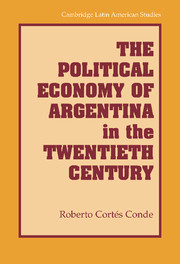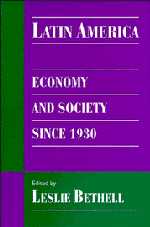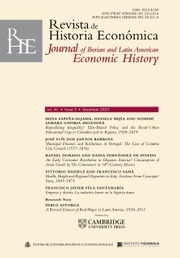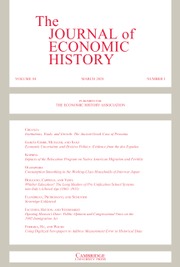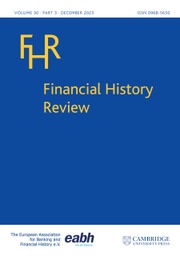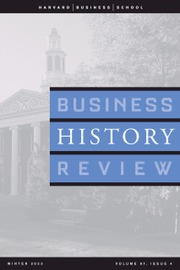The Political Economy of Argentina in the Twentieth Century
In this work, Roberto Cortés Conde describes and explains the decline of the Argentine economy in the 20th century, its evolution, and its consequences. At the beginning of the century, the economy grew at a sustained rate, a modern transport system united the country, a massive influx of immigrants populated the land and education expanded, leading to a dramatic fall in illiteracy. However, by the second half of the century, growth not only stalled, but a dramatic reversal occurred, and the perspectives in the median and long term turned negative, and growth eventually collapsed. This work of historical analysis defines the most important problems faced by the Argentine economy. Some of these problems were fundamental, while others occurred without being properly considered, but in their entirety, Cortés Conde demonstrates how they had a deleterious effect on the country.
- Explains the decline of the Argentine economy in the 20th century, its evolution, and its consequences
- This work of historical analysis defines the most important problems faced by the Argentine economy
- Can be a model for understanding other troubled economies
Reviews & endorsements
"Cortés Conde … presents an informative and salient history of the political economy of Argentina in the twentieth century. His book combines history, politics, and economics in an accessible, interesting manner for both students and scholars. The prose is supplemented with a wealth of statistical information that will leave any economist satisfied. The author uses regional, national, and international data to add breadth and depth to his analysis. Specifically, this volume is an excellent reader for courses in international trade, monetary theory, and banking courses … Highly recommended."
Choice
"The book is an excellent resource for those who wish to learn about the Argentinean economy and its main limitations during the twentieth century and it is highly recommended for any course on the economic history of Latin America."
EH.net
"This ambitious economic history of Argentina covering more than a century until 1989 is the first of its kind in many years published in English … connecting segments in the book show very fine understanding of Argentine political history as well as of economic development."
The Journal of Economic History
"… this is very much the work of a skilled historian … The book's goal is to explain why Argentina failed to sustain its position as a wealthy country, which it had achieved in the first decades of the twentieth century … It will be difficult for anyone interested in Argentina's economic decline not to take this work extremely seriously …"
Latin American Research Review
Product details
December 2008Hardback
9780521882323
406 pages
229 × 152 × 27 mm
0.77kg
Available
Table of Contents
- 1. Period of rapid economic expansion:
- 1880–1914
- 2. From World War I to the Great Depression of 1930
- 3. From the 1930 financial crisis to World War II
- 4. The political economy of Peronism
- 5. A divided society:
- 1955–73
- 6. The long decline.

